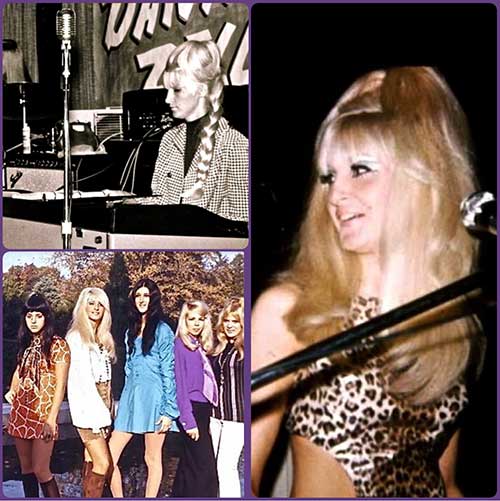Season Three: Episode Sixteen:
Arlene Quatro a.k.a. Foxy Lady
Season Three is here with Dr. Kristen Hillaire and Patti Quatro! We talk in depth about the groundbreaking all-female Detroit rock ‘n’ roll band, the Pleasure Seekers, formed in 1964.
At the ages of sixteen and seventeen, Patti and her two best friends, Nan Ball and Diane Baker, were hanging out together and noodling on their instruments in a basement in the suburbs of Detroit. Like so many other teens, the British invasion was having a huge influence on the cultural shifts occurring in music, and after seeing the Beatles live at Olympia Stadium, Patti was hooked on rock ‘n’ roll. She recruited younger sister, Suzi, and Nan’s younger sister, Mary Lou, at the age of fourteen, and the Pleasure Seekers were ready to go!
Also in 1964, Dave Leone’s and Ed “Punch” Andrews’ “Hideout” opened as a teen club in the suburbs of the city. It was an explosive time in Detroit – the music, the Motor City, the mayhem, and the magic! The Pleasure Seekers and the Quatro sisters were not only there to bear witness to it all, they helped to create the distinct and dynamic sounds of early rock ‘n’ roll in Detroit.
When the Pleasure Seekers (and Cradle) were inducted into the Detroit Music Awards at the Fillmore Theater in 2012, Dennis “Machine Gun” Thompson of the MC5 wrote, “The Quatro girls were the first all-female band that played instruments well, and forerunners for many bands to follow. One kick-ass band!”
On this episode, we welcome Arlene Quatro to the podcast! It’s a fascinating and in-depth conversation about her joining the band in 1966. Arlene was known as the “Foxy Lady,” because of her looks and the way she moved on stage. The male fans adored her! She shares what it was like being a mom of three when asked to join the band, how her husband, Leo Fenn, became the band’s manager, going on tour with three small children, her initial stage fright, and finally the freedom she felt when playing the keys and dancing to the music. Our discussion is real and raw, as well as a reflection on the cultural limitations women faced during this period of time.

Podcast: Play in new window | Download



